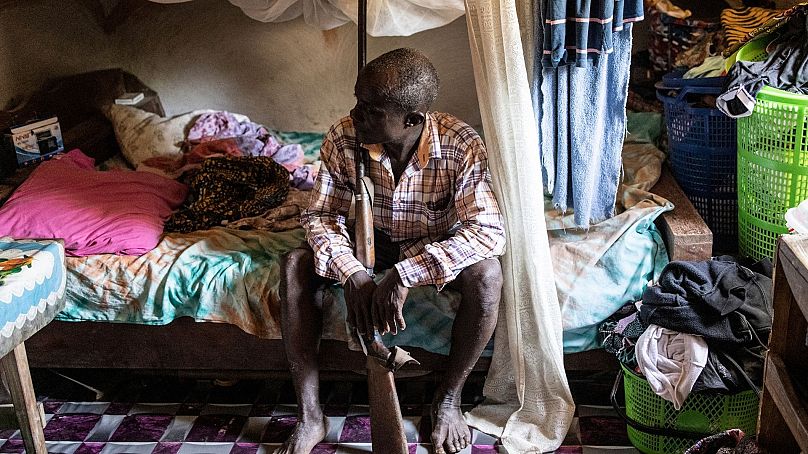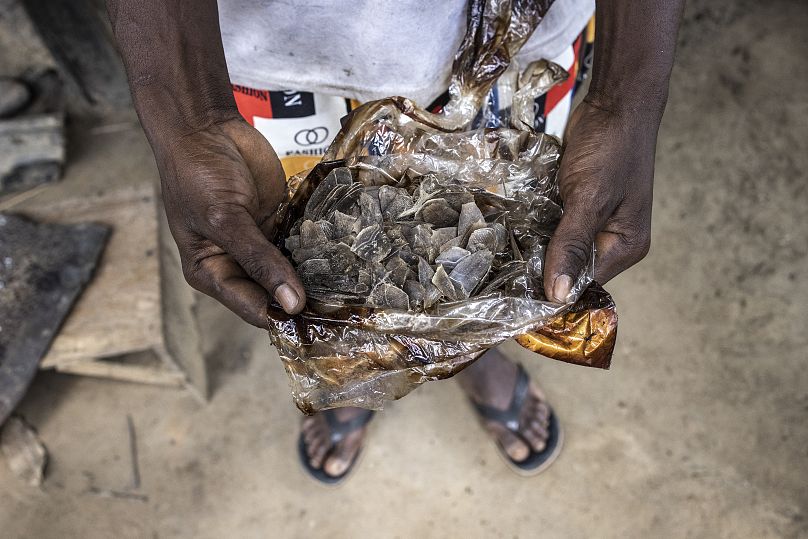AUSTRALIA
‘We will not be silent’: prominent women press Morrison government for violence and harassment reformKatharine Murphy and Daniel Hurst
Sat, 5 March 2022

Grace Tame
Australian activist
Prominent women, including the former Australian of the year Grace Tame and the former Liberal staffer Brittany Higgins, are launching a fresh call for the Morrison government to implement significant policies to protect women and children from violence, harassment and discrimination.
On the eve of International Women’s Day, the new coalition – which includes Christine Holgate, Lucy Turnbull, the former Liberal MP Julia Banks, as well as the film-maker and Indigenous advocate Larissa Behrendt, the youth advocate Yasmin Poole, the president of the Australian Council of Trade Unions, Michele O’Neil, the businesswoman Wendy McCarthy, the consent activist Chanel Contos, the Paralympic gold medalist Madison de Rozario, and The Parenthood’s Georgie Dent – has launched a social media campaign to press for reforms.
Related: NSW to revisit economic gender disparity in the wake of Grace Tame and Brittany Higgins
The high-powered group is calling on the government to implement the central recommendation of the Respect@Work report – imposing a positive duty on employers to safeguard their staff from sexual harassment.
In addition, the call is for 10 days paid family and domestic violence leave, full implementation of the National Plan for First Nations Women and Girls, ensuring effective employment programs for women with disability, enacting stronger and consistent child sexual assault laws, and legislative measures to address the gender pay gap.
The group is also seeking the provision of free, accessible and quality early childhood education and care, expansion of paid parental leave, and embedding respectful relationships and consent education in schools, universities, workplaces and homes.
In a new video message fronted by members of the coalition, the women make it clear they want to continue the momentum of 2021 – an extraordinary year where thousands of Australian women and their allies took part in public demonstrations triggered by a #MeToo moment in the Australian parliament.
In February, Scott Morrison, along with other political leaders, apologised for the “terrible things” that happened in parliament workplaces and acknowledged a culture of bullying, abuse, harassment “and in some cases even violence” built up over decades.
Morrison’s apology followed a landmark review by Australia’s sex discrimination commissioner, Kate Jenkins, in 2021 into federal parliament’s culture.
The Jenkins review, which recommended a significant overhaul of the workplace culture, found one in three staffers interviewed had been sexually harassed. That inquiry was constituted after Higgins, a former government adviser, alleged she was raped by a colleague after hours in a Parliament House ministerial office in March 2019.
The new social media campaign video opens with Tame, a survivor of sexual assault, declaring: “Australia – we need to talk”.
The women note that 2021 “wasn’t the first year that women in Australia were harassed or unsafe or ignored or disrespected”.
“It wasn’t even the first year that women spoke up about these things. But in 2021 more Australians started to listen to women of different ages, occupations and beliefs, who stood up and spoke out, exposing discrimination, harassment, sexism, disrespect and intimidation,” they say. “And the more people listened, the more familiar the story became”.
In a joint statement, members of the coalition noted one in five Australian women would be sexually assaulted or raped in her lifetime, and one in three women would encounter workplace sexual harassment.

Brittany Higgins triggered parliament’s #MeToo reckoning.
Photograph: Lisa Maree Williams/Getty Images
Poole, Plan International’s national ambassador and advocate for girls’ rights, noted: “If you’re a First Nations woman, a woman of colour, have a disability or identify as LGBTIQ+, those statistics are even worse.”
Morrison governments announces funding
Separately, the Morrison government announced on Sunday it would spend $189m over five years on strengthening prevention and early intervention efforts in family, domestic and sexual violence.
The pledge includes $104m over five years for the primary prevention organisation Our Watch, which will help it to drive change in the corporate sector and raise awareness about gendered violence.
The minister for women, Marise Payne, said Our Watch would also develop safety programmes for use in Tafes, universities, the media, workplaces and sports organisations.
“Our Watch will also boost its efforts in prevention for LGBTIQA+ Australians, Australians with disability and migrant women and develop further resources to educate young people about consent,” Payne said.
The government will fund two new campaigns to run across mass media channels, including television, cinema, social media and bus stops.
One of the campaigns will be adapted from Scotland’s “Don’t Be That Guy” initiative and will ask men to consider “how they can hold each other to account because sexual violence should not be considered a women’s problem to solve”.
The other government-funded campaign will target young people 12 and older and their parents.
The minister for women’s safety, Anne Ruston, said new research showed while almost nine in 10 Australians polled agreed “adults should talk to young people more about the topic of consent”, almost half of Australians were confused about the issue of sexual consent. That led them to actively avoid the topic.
“Today we are also making the announcement to fund a survey of secondary school-age students so that we can understand what are the issues that they are confronted with as they make their journey through life and to make sure that they have a better understanding of consent,” Ruston said.
Related: Grace Tame and Brittany Higgins: nine key moments from the sellout press club event
The Australian Human Rights Commission will develop the survey in partnership with coalition member Contos, who is the founder of Teach Us Consent.
Ruston said the government was committed to making Australia “a country where everybody lives free from fear of violence and free from violence”.
Patty Kinnersly, the chief executive of Our Watch, said the organisation was seeing “record demand for our support and services in universities, workplaces and sporting clubs and organisations” and community sentiment was changing.
“We are now talking about consent, we are now talking about violence against women being in the public domain, we are now giving people in the community to be bystanders and not let the sexist joke go past,” Kinnersly said.
Poole, Plan International’s national ambassador and advocate for girls’ rights, noted: “If you’re a First Nations woman, a woman of colour, have a disability or identify as LGBTIQ+, those statistics are even worse.”
Morrison governments announces funding
Separately, the Morrison government announced on Sunday it would spend $189m over five years on strengthening prevention and early intervention efforts in family, domestic and sexual violence.
The pledge includes $104m over five years for the primary prevention organisation Our Watch, which will help it to drive change in the corporate sector and raise awareness about gendered violence.
The minister for women, Marise Payne, said Our Watch would also develop safety programmes for use in Tafes, universities, the media, workplaces and sports organisations.
“Our Watch will also boost its efforts in prevention for LGBTIQA+ Australians, Australians with disability and migrant women and develop further resources to educate young people about consent,” Payne said.
The government will fund two new campaigns to run across mass media channels, including television, cinema, social media and bus stops.
One of the campaigns will be adapted from Scotland’s “Don’t Be That Guy” initiative and will ask men to consider “how they can hold each other to account because sexual violence should not be considered a women’s problem to solve”.
The other government-funded campaign will target young people 12 and older and their parents.
The minister for women’s safety, Anne Ruston, said new research showed while almost nine in 10 Australians polled agreed “adults should talk to young people more about the topic of consent”, almost half of Australians were confused about the issue of sexual consent. That led them to actively avoid the topic.
“Today we are also making the announcement to fund a survey of secondary school-age students so that we can understand what are the issues that they are confronted with as they make their journey through life and to make sure that they have a better understanding of consent,” Ruston said.
Related: Grace Tame and Brittany Higgins: nine key moments from the sellout press club event
The Australian Human Rights Commission will develop the survey in partnership with coalition member Contos, who is the founder of Teach Us Consent.
Ruston said the government was committed to making Australia “a country where everybody lives free from fear of violence and free from violence”.
Patty Kinnersly, the chief executive of Our Watch, said the organisation was seeing “record demand for our support and services in universities, workplaces and sporting clubs and organisations” and community sentiment was changing.
“We are now talking about consent, we are now talking about violence against women being in the public domain, we are now giving people in the community to be bystanders and not let the sexist joke go past,” Kinnersly said.




















